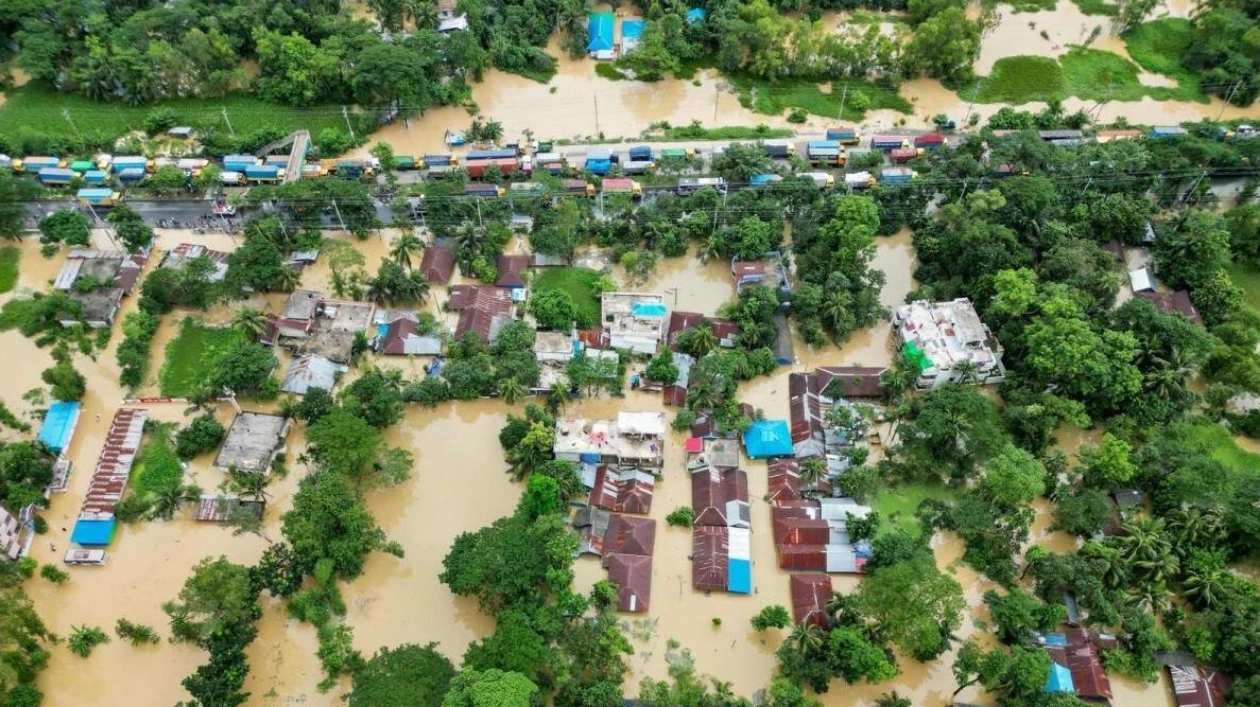An aerial view reveals partially submerged houses in Feni following floods in August, captured in an AFP File Photo.
Floods in Bangladesh have reportedly destroyed an estimated 1.1 million metric tonnes of rice, according to the agriculture ministry. This has prompted the country to increase its imports of the staple grain amid rising food prices. Heavy monsoon rains and torrential upstream runoff caused two major flood waves in August and October, resulting in at least 75 deaths and affecting millions, particularly in the eastern and northern regions where crop damage has been most severe.
The agriculture ministry reports a significant loss in rice production due to this year's flooding. In response, the government is expediting the import of 500,000 tonnes of rice and is expected to soon allow private sector imports, according to a food ministry official. The interim government, which came to power in August after protests forced former Prime Minister Sheikh Hasina to flee to India, has been grappling to stabilize food prices, which have surged nearly 20% in recent months.
Increased imports by Bangladesh could boost shipments from neighboring India, the top global rice exporter, which recently reduced the duty on parboiled rice exports to 10%. The floods have also severely damaged other agricultural products, including over 200,000 tonnes of vegetables. Total nationwide agricultural losses due to the flooding are estimated at around 45 billion taka ($380 million).
Bangladesh, the world's third-largest rice producer, usually produces nearly 40 million tonnes of rice annually to feed its population of 170 million. However, natural disasters often disrupt production, leading to increased reliance on imports. This year's floods highlight Bangladesh's vulnerability to climate change. A 2015 World Bank Institute analysis estimated that 3.5 million people in Bangladesh are at risk of annual river flooding, a risk scientists believe is worsening due to global climate change.
Khandakar Mohammad Iftekharuddaula, chief scientific officer at the Bangladesh Rice Research Institute, emphasized the need to develop more flood- and drought-tolerant crop varieties, along with short-duration varieties, to ensure food security in the face of increasing climate challenges. He stressed that investing in agricultural research is crucial for developing these resilient crops, helping farmers adapt to changing weather patterns and stabilize yields even in difficult conditions.
Source link: https://www.khaleejtimes.com






